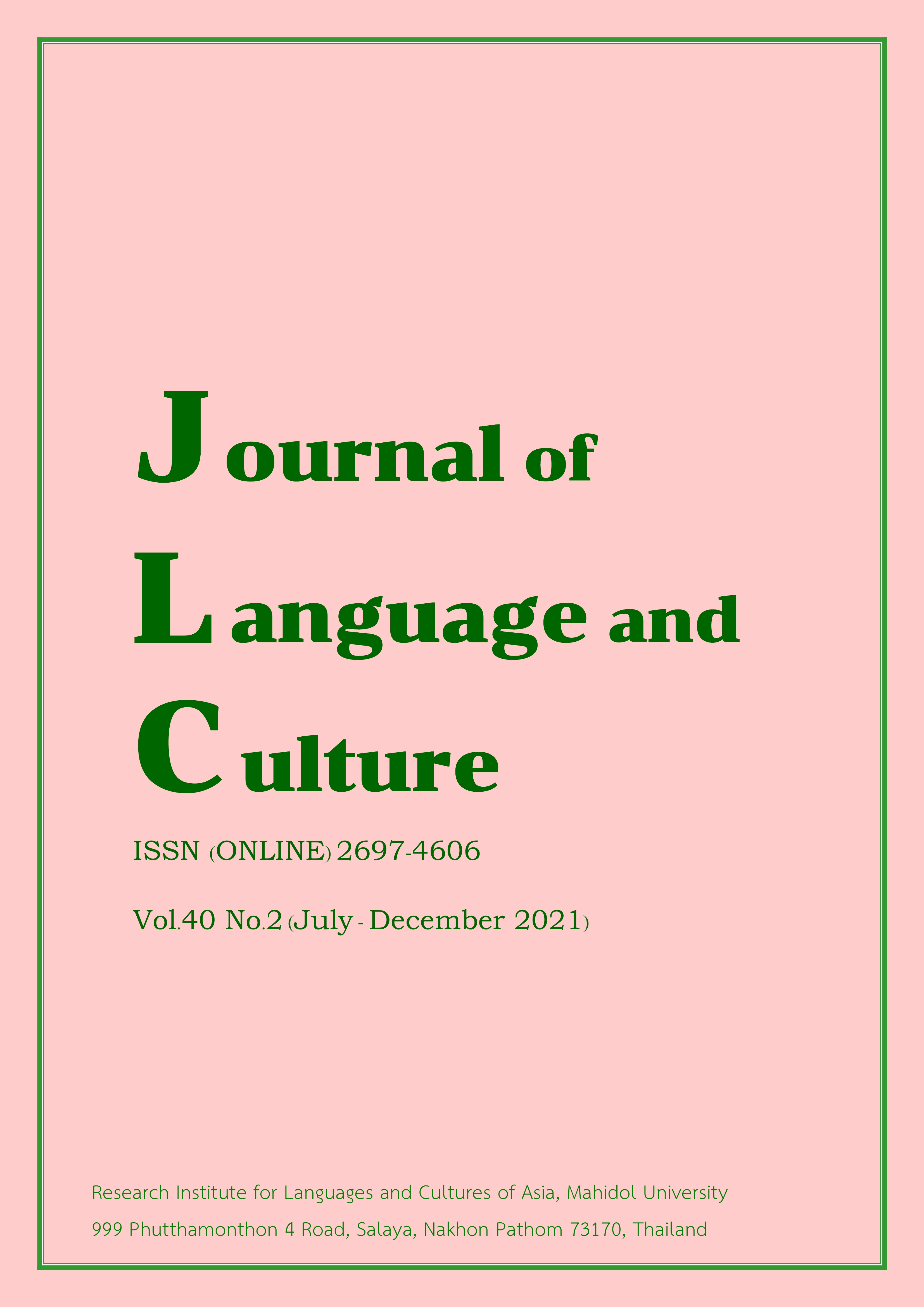Attitudes towards Thai-English code-switching among Thai speakers in Generation
Main Article Content
Abstract
Despite the increasing importance of English both in Thai society and worldwide, the appropriateness of code-switching practices has been a controversial issue among Thai speakers, especially those in Generation Y whose attitude runs the gamut from acceptance to rejection. Thus, this paper examines Thai speakers in Generation Y’s attitudes towards code-switching between Thai and English. It aims to find out their attitudes towards different types of Thai-English code-switching and explore the relationship between their attitudes and two factors – their English language background and occupational domain. Using the verbal guise technique, 40 Thai speakers in Generation Y were asked to rate verbal-guise sentences on a semantic differential scale of social attractiveness and social status. The findings reveal that Thai sentences are rated most positively, followed by those with insertion of English words, inter-sentential switching, tag switching, English sentences, and lexical chunk switching, respectively. The correlation between the participants’ attitudes and their English language background and occupational domain is not found to be statistically significant. However, the participants’ responses in open-ended questions suggest that different degrees of exposure to code-switching influence their attitudes towards code-switching. In other words, the higher degree of exposure to code-switching through the media and everyday conversation may lead to more positive attitudes towards code-switching. The findings contribute to the understanding of the attitudinal dynamic towards Thai-English code-switching among Thai speakers and can be applied to further research on similar topics or research in other related fields, including English teaching and communication studies.
Article Details
The articles featured in the Journal of Language and Culture (JLC) constitute academic works representing the viewpoints of the respective author(s). It is crucial to note that these opinions do not necessarily reflect those of the Editorial Board.
All articles published in JLC are released under the Creative Commons Attribution 4.0 International License (CC BY 4.0). This license grants permission for unrestricted use, distribution, and reproduction in any medium, provided proper credit is given to the original author(s) and the source.


